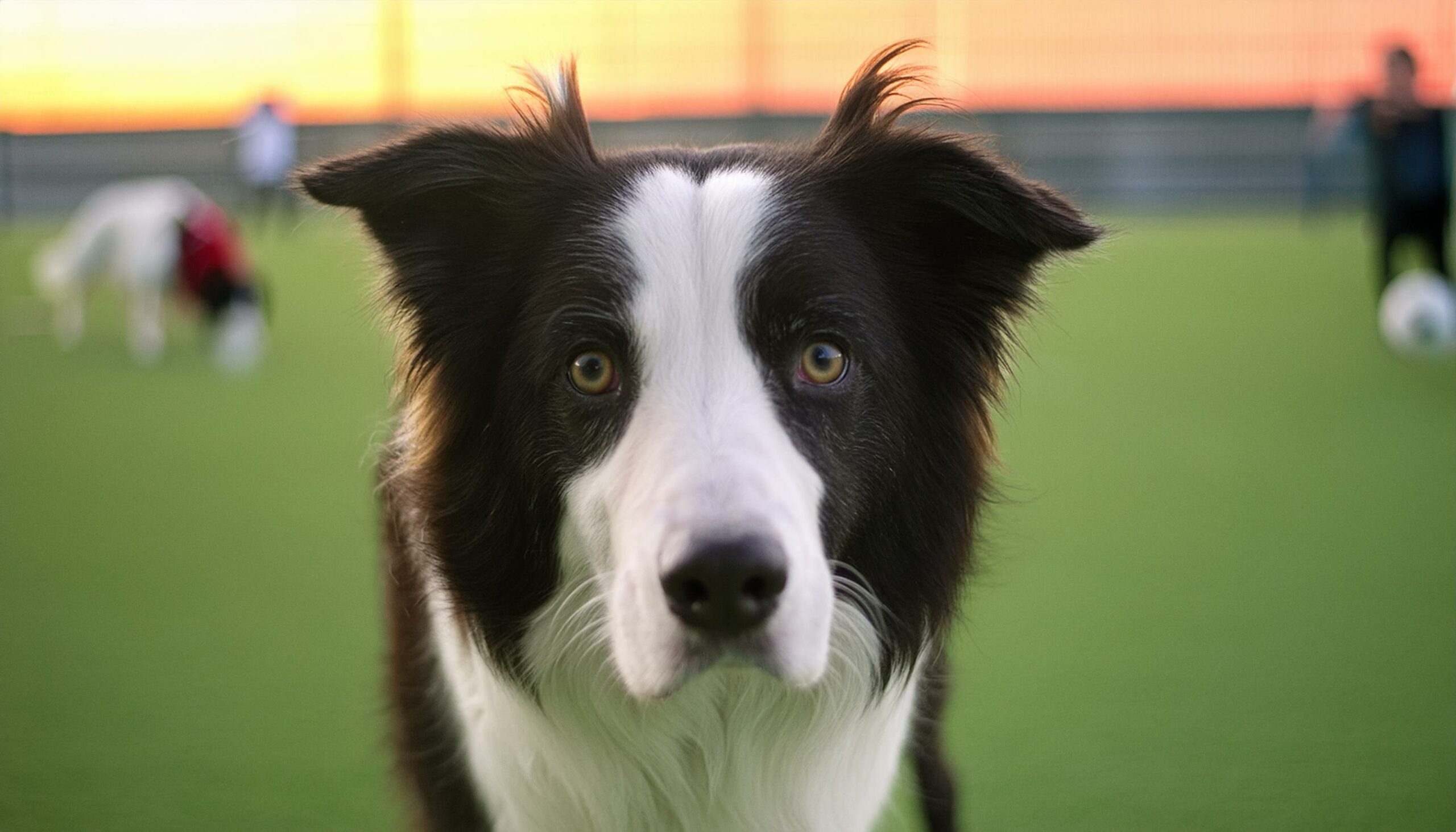Border Collies are a remarkable breed known for their exceptional intelligence, unwavering loyalty, and remarkable agility. Originating from the border regions of Scotland and England, these dogs were initially bred for herding livestock. Their keen sense of sight and ability to anticipate movements make them excel in various tasks, from obedience competitions to agility trials.
Importance of Vision in Dogs
Vision is a crucial sense for all dogs, enabling them to navigate their surroundings, interact with their environment, and engage in various activities. For Border Collies, whose work often revolves around herding and agility tasks, maintaining optimal eye health is vital for their performance and well-being.
Can Border Collies Have Bad Eyes?
Genetic Predispositions
Border Collies, like many purebred dogs, can inherit certain genetic predispositions that may increase their susceptibility to eye problems. While responsible breeding practices aim to minimize these risks, it’s essential for owners to be aware of potential issues and proactive in monitoring their dog’s eye health.
Common Eye Problems in Border Collies
Collie Eye Anomaly
Collie Eye Anomaly (CEA) is a congenital condition that affects the development of the eye. It is prevalent in Border Collies and can vary in severity, ranging from mild to severe. Dogs with CEA may exhibit abnormalities such as optic nerve hypoplasia, retinal detachment, or choroidal hypoplasia.
Progressive Retinal Atrophy
Progressive Retinal Atrophy (PRA) is a degenerative eye disorder that leads to the gradual deterioration of retinal cells, eventually resulting in blindness. While PRA can affect any breed, Border Collies may be predisposed to this condition due to their genetic makeup.
Cataracts
Cataracts are characterized by the clouding of the lens in the eye, which can impair vision. While cataracts can develop in dogs of any age, they are more commonly observed in older Border Collies. In some cases, cataracts may be inherited or secondary to other underlying health issues.
Glaucoma
Glaucoma is a condition characterized by increased pressure within the eye, leading to pain, vision loss, and optic nerve damage. Border Collies may be susceptible to primary or secondary glaucoma, which can develop suddenly and require prompt intervention to prevent irreversible damage.
Symptoms of Eye Problems in Border Collies
Recognizing the signs of eye problems in Border Collies is crucial for early detection and intervention. While symptoms may vary depending on the specific condition, common signs to watch for include:
Behavioral Changes
- Increased sensitivity to light
- Excessive blinking or squinting
- Rubbing or pawing at the eyes
- Changes in behavior or activity level
Physical Signs
- Redness or inflammation of the eyes
- Excessive tearing or discharge
- Cloudiness or opacity in the lens
- Swelling or protrusion of the eyeball
Changes in Eye Appearance
- Enlargement or bulging of the eyeball
- Changes in pupil size or shape
- Visible abnormalities such as growths or lesions
Preventive Measures

While some eye conditions in Border Collies may be hereditary or unavoidable, there are steps that owners can take to promote optimal eye health and minimize the risk of complications:
Regular Vet Check-ups
Routine veterinary examinations are essential for monitoring your Border Collie’s overall health, including their eye health. Your veterinarian can perform comprehensive eye exams to detect any signs of abnormalities or underlying conditions early on.
Proper Nutrition
A balanced diet rich in essential nutrients, vitamins, and antioxidants is crucial for maintaining your Border Collie’s overall health, including their eye health. Look for high-quality dog food formulated to support eye health and consult with your veterinarian about any specific dietary recommendations.
Eye Care Routine
Establishing a regular eye care routine can help keep your Border Collie’s eyes clean and healthy. This may include gently wiping away any discharge or debris from around their eyes with a damp cloth and inspecting their eyes for any signs of redness, swelling, or other abnormalities.
Treatment Options
Treatment for eye problems in Border Collies will vary depending on the specific condition and its severity. Options may include:
Medications
Prescription eye drops or ointments may be used to alleviate symptoms, reduce inflammation, or manage underlying conditions such as infections or inflammation.
Surgical Interventions
In cases where conservative measures are ineffective or vision is significantly compromised, surgical procedures such as cataract removal or glaucoma surgery may be recommended to improve your Border Collie’s vision and quality of life.
Lifestyle Adjustments
Making adjustments to your Border Collie’s environment, lifestyle, or activities may be necessary to accommodate any visual impairments and ensure their safety and well-being. This may include providing additional supervision or assistance during activities such as walking, playing, or navigating unfamiliar environments.
Living with a Border Collie with Eye Issues
Caring for a Border Collie with eye problems can be challenging, but with patience, understanding, and proper management, you can help your beloved pet lead a fulfilling life. Providing emotional support, making necessary accommodations, and working closely with your veterinarian can help minimize any discomfort or limitations associated with their condition.
Conclusion
In conclusion, while Border Collies may be predisposed to certain eye problems due to genetic factors or breed characteristics, proactive management and attentive care can significantly mitigate risks and improve outcomes. By staying vigilant, seeking veterinary guidance, and implementing preventive measures, owners can help safeguard their Border Collie’s vision and overall well-being.
